How to Cook in the Throes of Burnout
Burnout Cooking — adhd cooking Tips
cooking when everything sucks
Burnout has a knack for ruining the enjoyment of juuuuust about everything—including daily meals.
Even though cooking might be the last thing you want to do, you have to find a way to get enough food in your system. Ideally, without making your burnout exponentially worse.
Here, you'll find a bunch of ideas to make burnout cooking a lil less miserable. More manageable. Maybe even a bit more enjoyable.
This post is full of lotsa goodness, so grab a snack, get cozy, and let’s dig into it.
For more on Burnout Cooking: check out Microwaveable Burnout Meals, Pre-made Burnout Meals, and a bunch of Burnout-Friendly Recipes
12 tips for easier burnout cooking ↓
01. adjust your expectations
First off, managing foodstuff when you're burnt out is hard as heck. It's not easy to keep yourself fed when everything feels like it's smooshing you into the soil.
Whatever you typically do for meals is probably not going to work now.
That's okay. It's expected.
Maybe that means your meals are "unconventional" or consumed entirely out of bags. Maybe meals are prepared with such little zest or interest that the flavor is almost undetectable and the texture is some kind of over-microwaved mush.
That's okay. It's expected.
You don't need to be operating at the same capacity as "not burnt out” you. You shouldn't even be trying to perform at that level.
You need rest.
So, before we move on to the rest of these tips for easier burnout cooking, remember to be realistic about your current energy levels.
How much energy can you spend on food stuff? Where can you conserve energy? How does this adjustment impact your daily meals?
Update your burnout meal standards and expectations to fit what is realistic—emotionally, and energetically.
02. make those batches bigger
You'll find this advice just about everywhere if looking for burnout cooking help.
Honestly, it's good advice.
Bigger meal batches really help manage the labor of cooking because you wind up cooking, well, less.
Instead of cooking lunch or dinner every single day when I’m burnt tf out, I make sure the food I cook feeds me for more than one meal.
Sure, it compromises on the *fresh crisp texture* of *perfectly roasted Brussels Sprouts*, but I think the payoff of less cooking is absolutely worth it.
Folks often make bigger batches of food in traditional meal prepping, but you don't have to extensively plan your meals, smooshing them into tiny perfect compartment containers.
Just double the recipe for a meal you enjoy regularly.
Throw a lil extra Veggies in the oven or on the pan. Cook dishes that scale up easily or already make large batches.
The less you have to cook each day, the more time you can focus on the things you find restful, rejuvenating, and restorative.
If you struggle to eat leftovers, slap some tape on the container and sharpie in the date. That way, you know when to toss it or freeze it, if it gets shoved to the back of your fridge.
Some standard, large-batch meals include things like Soups and Stews or Sheet Pan Meals.
this soup looks fancier than it is to make
Large-Batch Meals: many of the Meal Building recipes, this Potato White Bean and Kale Soup, this Apple Arugula Pasta Salad, and this Soyrizo and Potatoes Sheet Pan recipe
03. opt for Simpler recipes
Part of adjusting your expectations means knowing that your meals might be a bit basic or less involved.
The purpose of pursuing simpler recipes is to make the cooking process less labor intensive. Less emotionally taxing. Less executive-function draining.
Think back to the basic meals you can whip up in a pinch without thinking too much about preparation.
Meals can be as simple as Buttered Bread, a tray of Roasted Tiny Potatoes, or a microwaved bag of White Rice, topped with Sriracha.
Lunch could even be a plain block of Tofu ↗, though I do recommend some Soy Sauce or at least like, Onion Powder.
As Julia Turshen says ↗, “not every meal you eat has to be the best meal you’ve ever had”.
Identify your version of these simple meals, write them down, and stick em somewhere helpful.
I often refer to Burnout Meals and Level 1 Difficulty dishes, for simplicity in my own kitchen.
a simple, go-to dinner formula is a Bean, Green, Grain Bowl
The meal formula is simple enough to remember that I can just whip it up in a pinch with very little executive function.
Bean, Green, Grain Bowls are a perfect burnout meal for me because they’re so easy to prepare—plus, the formula even acts as a lil grocery list.
Beans
Greens
Grains.
Try this Bean, Green, Grain Bowl on the site: Black Bean, Kale, Quinoa Bowl with Herby Tahini Dressing
04. Take every shortcut you can
I recommend shortcuts for daily cooking—even when you're feeling 100%.
But, seeking out shortcuts is one of those energy-conserving tips I rely on *extensively* when I'm burnt out.
my fav kitchen shortcuts
Pre-chopped Veggies like Onions, Broccoli Florets, chopped Squash, shredded Carrots, and Cabbage (frozen or in the produce section)
Pre-cooked Grains like Rice or Quinoa (frozen or shelf stable)
Opting for Frozen Meals to just stick in the microwave
Bagged Salad kits plus a protein (Chicken Nuggets, Beans)
Cans of Soup and other Pre-made Meals
Electric can openers
This double-boiler situation in the notes section
Toaster-cooking meals like Hashbrown Burrito Wraps or this Toaster-made Breakfast Sandwich
Pressure Cookers and Air Fryers
Paper plates and plastic utensils
Keeping easy Snacks nearby
05. seek out the interest
When managing ADHD, one of the most important things we can do is make the awful more enjoyable.
This is just as important—if not more so—when burnt tf out.
Even if you actually like cooking (or if you don't find it particularly difficult), burnout can make every action feel like you’re slogging through it.
Seeking out interest makes the blah more bearable.
start by getting curious about your meals
What happens to noodles at 1-minute intervals as they boil?
Can I achieve the perfect amount of Salt in this dish?
Does a single Bay Leaf actually impact the flavor of this Soup? (it does)
Are there any new ingredients or recipes I've been wanting to try?
What is the prettiest way I can present this food?
What if I got dressed up like a lil chef to make a meal?
Can I treat this meal like I'm a fancy dinner guest?
I find that following my curiosity makes mundane cooking moments more energizing and helps to cultivate a genuine interest in the cooking process.
(photo by PNW Production from Pexels)
06. …don't
I know it's the most obvious solution. I know it's not always accessible. It requires financial and social flexibility.
But you know I had to put it in here.
In case you're pressuring yourself to cook a bunch of homemade meals and you can afford to not do that...just like, don't cook.
Order takeout. Purchase extra to last for several meals.
Stock up on meal kits that only require an oven or microwave and minimal arranging.
The main reason I include this section is to stress that it's normal and okay to need a break from cooking.
There's no shame in relying on others to prepare meals for you—temporarily or forever.
Communal meals and distribution of cooking labor is something unfamiliar to a lot of us (especially for those living on their own), but it is truly an essential part of our social structure as beings.
Our literal entire existence as humans has depended on community support to survive.
Unfortunately, direct, close relationships with those who can offset the labor of preparing food are not accessible to many of us, for one reason or another.
Instead, we have to order takeout. Or get meals from folks at Food Not Bombs ↗ or Chilis on Wheels ↗.
Don't feel bad about outsourcing.
07. make your staple meal list
It sucks to figure out what to eat when you don't have an appetite or when your brainpower has gone out the window.
A Staple Meal List is something I recommend every single burnt-out ADHD person creates to help with this issue. It makes choosing meals far easier when everything else feels difficult or impossible.
To make your Staple Meal List: Take some time (when you're fed) to write down some meal options you can turn to in moments of low executive function. Keep it nearby and refer to it when you need to find something to eat.
A Staple Meal List is genuinely an amazing tool to reduce the effort spent on deciding daily meals. I love having mine because it means I never have to think too hard about meal options.
I just skim a checklist and choose what's available.
I can do it from the kitchen when I feel hunger pangs and I can do it when I'm a miserable pile of me, hiding under bedsheets.
check out the workbook if you want more support making your Staple Meal List
08. do some meal prepping, but better
Another one of those tips in every single "Burnout Support List" on the internet is meal prepping.
Smart suggestion, but I don't recommend doing it in a traditional way.
As ADHD folks, traditional meal-prepping methods don't often work for us.
They don't offer enough spontaneity. They’re too complicated. They require hours of attention. We go overboard and decide to organize the whole kitchen while we're at it. We accidentally over-plan and never get to actually cooking.
Or, we forget about our grand ideas overnight and all our groceries spoil and we feel like we're failures. We're not failures, but it really feels like it.
Meal prepping doesn't have to be a whole production or look like it does on social media. It doesn't have to be comprehensive or perfect.
All meal prepping has to do is make meals easier, and there are a ton of ways to do that.
One way is to get a bunch of pre-made or pre-prepped items.
Think back to the shortcuts: pre-chopped Veggies and Noodles or Pasta dishes that just need to be pulled from the freezer.
Maybe you plan your meals for the following day, versus an entire week. Make twice as much food as you do for today's meals, then stick the pot of leftovers in the fridge to scoop out tomorrow.
Maybe you just think of meal prepping as reducing the barrier to cooking for future you.
Chopping Veggies ahead of time, preparing Rice and freezing it to microwave later. Relying on ready-made items like canned Beans or frozen Pie Crusts.
(This is along the lines of what I do when Meal Building, my version of meal prep)
Meal prepping could also just be about making the cooking process more enjoyable.
Set the scene by turning on music or a podcast. Call a friend to keep you focused on the task in front of you. Clean out the kitchen sink before you start adding more dirty dishes to it.
Broaden your ideas about meal prepping and make it work for you, rather than against your natural tendencies.
I'm currently working on a longer post specifically about burnout-friendly meal prepping and like, how I think we should think about it. So stay tuned for more on this.
09. notice when burnout is creeping into meals
When you're burnt out on other areas of life and everything feels like a massive, terrible burden, it's pretty common for meals to feel like a massive, terrible burden too.
I know you don't need me to tell you that it's not v healthy to think of food that way.
When cooking or eating becomes something you dread or feel extremely depleted doing, I want you to take that seriously.
Talk to your loved ones about it and ask them to help make the process more enjoyable. Cook the same meals as your friends over the phone, send pics of your snacks to one another, start a meal train or trade weeknight dinners with a friend, and cook for others if you find that motivating.
But when your burnout is bad enough that it's seriously impacting your ability to take care of yourself, it might be more than burnout.
Seek support from professionals—dieticians, therapists, and doctors. Don't try to tough it out on your own or solely with articles like this one.
Get help from people who know more than I do.
10. recognize that your meals fulfill many purposes
It's necessary to keep things simple and conserve energy where you can when you're burnt out.
It's also important to prioritize eating enough food because you literally need food to survive.
You need food to power your big beautiful brain and body as you heal from burnout.
Eating enough food has a purpose.
Cooking as a form of care also has a purpose.
Acknowledging that preparing meals *is absolutely* labor—I want to emphasize how important it is to appreciate the process, too.
Choose meals and cooking practices that bring you joy and comfort whenever possible.
Intentionally seek meal experiences that contrast the terrible feelings of burnout exhaustion.
Do prioritize the essentials like eating enough and staying hydrated.
But also, cook the foods you like. The stuff that nourishes your soul. It’s just as important to take care of your mind, as it is your body.
11. find non-cooking things to do
When cooking sounds terrible, work on things that feel less terrible.
Or, at the very least, feel like a ~different~ kind of terrible.
I opt for things like cleaning and organizing spaces in my kitchen.
Rearranging jars gets me familiar with what hides in the Garlic Powdered corners of the Spice cabinet.
Sometimes I find something a Spice that sparks interest in a meal, and sometimes it just feels good to get labels facing the right way again.
Tossing old food and clearing out the produce drawer graveyard keeps my fridge space looking inviting.
And if I do wind up cooking something later, I can easily put leftovers back in the fridge without having to cram everything deeper into the abyss.
Pick a section of your kitchen that feels reasonable to tackle and spend some time making it more inviting or user-friendly.
It’s a great way to get re-acquainted with the space you may have been avoiding, without the pressure of cooking a meal.
(photo by Polina Tankilevitch from Pexels)
12. find people who like food and cooking more than you do right now
Burnout zaps the joy out of pretty much everything.
It's hard to feel optimistic and motivated to put in extra effort to make a decent meal when the only thing you notice is "extra effort".
That's why I look elsewhere.
My usual go-to support when trying to find interest in cooking is thumbing through cookbooks. Reading other people's words who wax poetic about Apple Pie or the perfect crispy Baked Potato. That kind of stuff.
Sometimes you just have to outsource the positivity.
Food writers are absolute geniuses at romanticizing the little intricacies of cooking. They can offer a lot of wisdom in their work—both emotionally, and technically.
When I want to browse recipes that make me laugh and feel connected to the cooking process, I read through Isa Chandra Moskowitz's Post Punk Kitchen ↗ blog or flip through Isa Does It ↗ (one of my all-time fav cookbooks).
If I want to feel a wholesome sense of realism and connection around home cooking, I read through Julia Tursen's Simply Julia ↗ or her beautifully cozy newsletter, Keep Calm and Cook On ↗.
Find the food writers that resonate with you and keep tabs, cookbooks, and recipes nearby.
They make cooking less daunting, more enjoyable, and easier to get excited about.
If you need more ideas of where to look, I'm working on a post of food writing inspiration, full of my favorite folks who always get me excited about cooking.
Stay tuned for more good stuff on this front, along with more burnout tips and recipes.
sign up for the newsletter for new posts and other finds
I send out my newsletter, bites and pieces ↗, every month or so. I link all the new posts on the site, plus some fun reads and recipes I think you'll enjoy.
It's a great way to stay in touch in case you—like me—forget about every website immediately after closing the tab. Plus, I typically include a bit more about my life outside-the-kitchen, if you’re into that sort of thing.
If you enjoy these posts and would like to help financially support this project, access my Tip Jar on Ko-fi ↗
Any and all donations are sincerely appreciated!

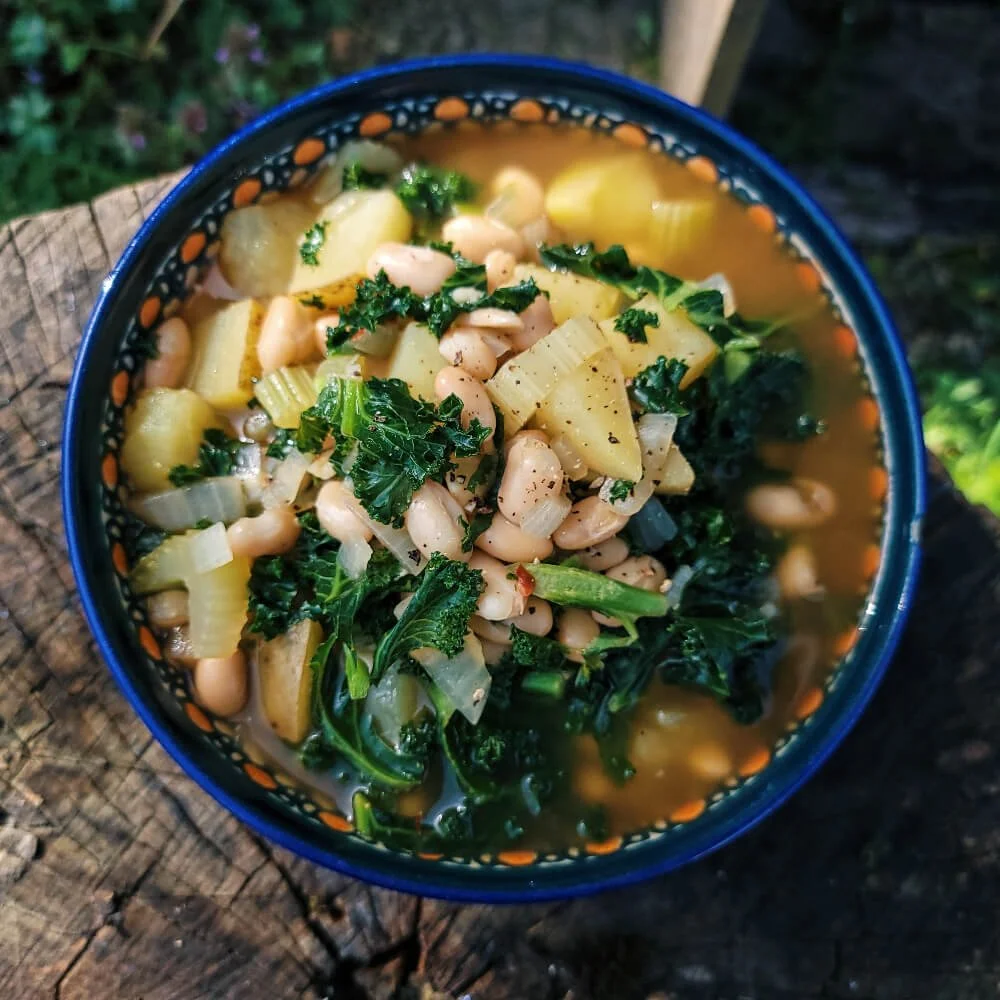


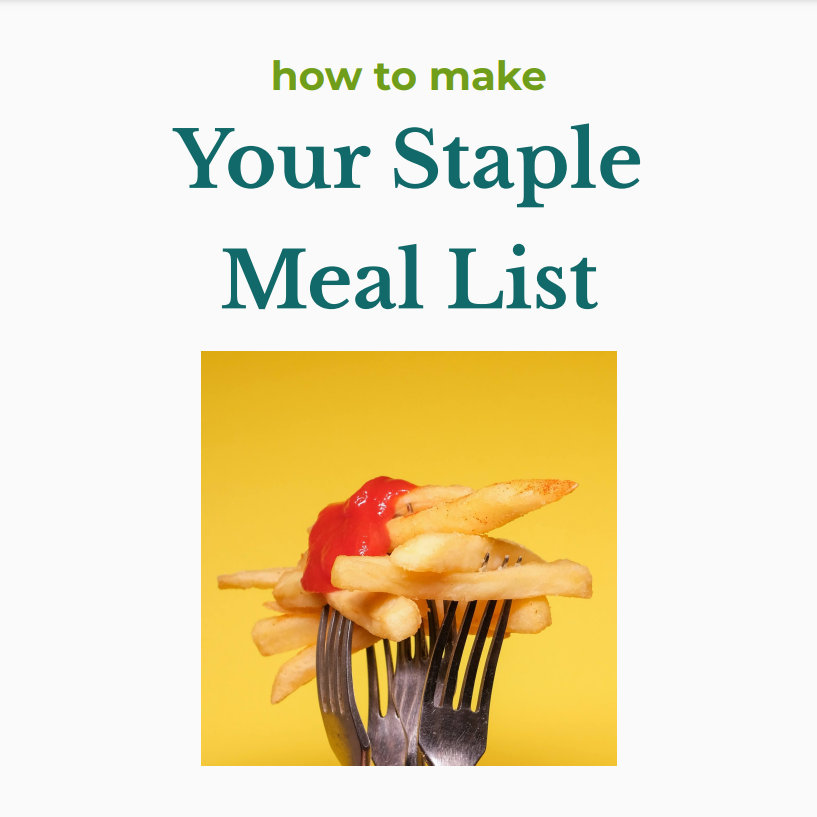
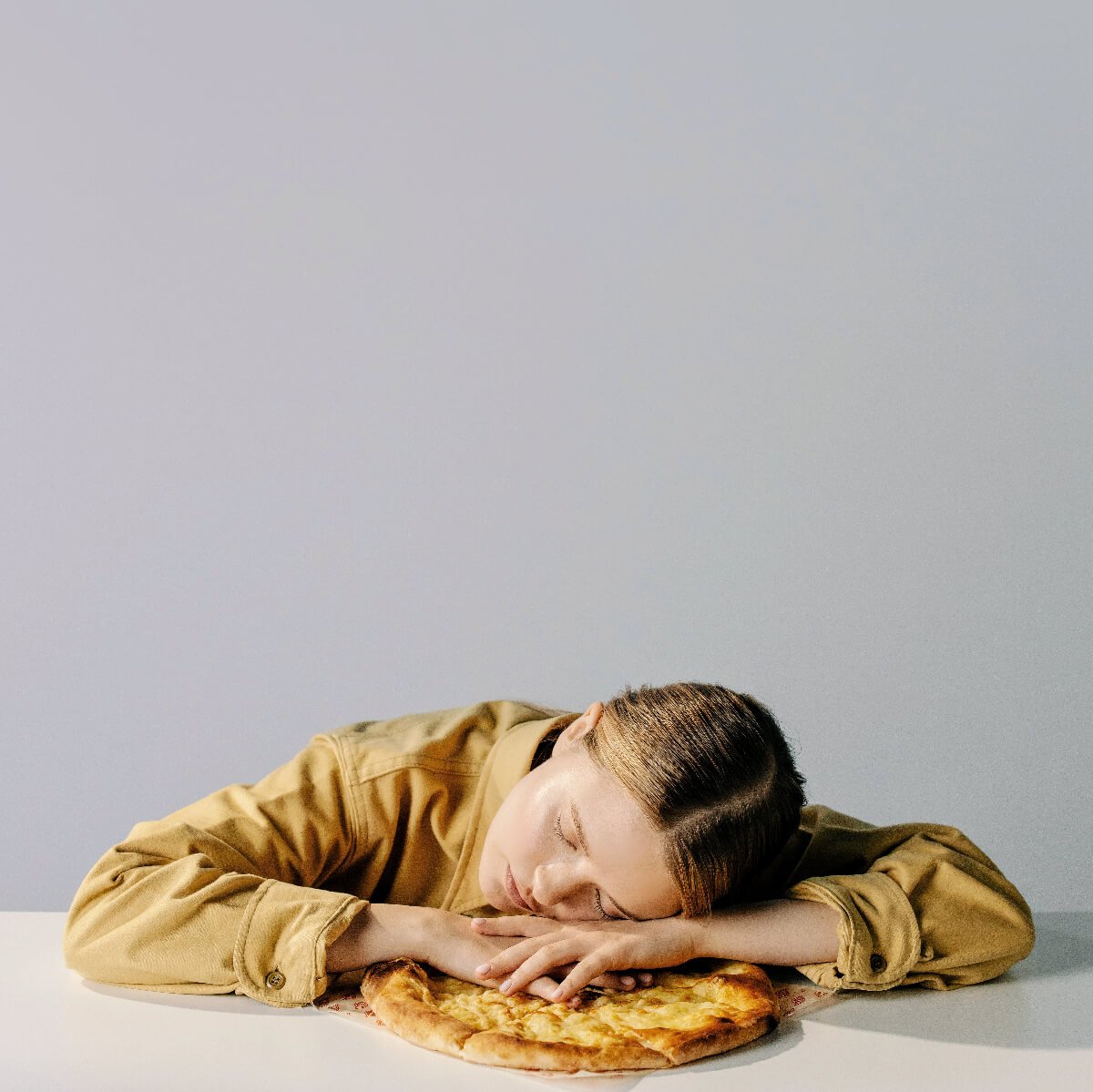


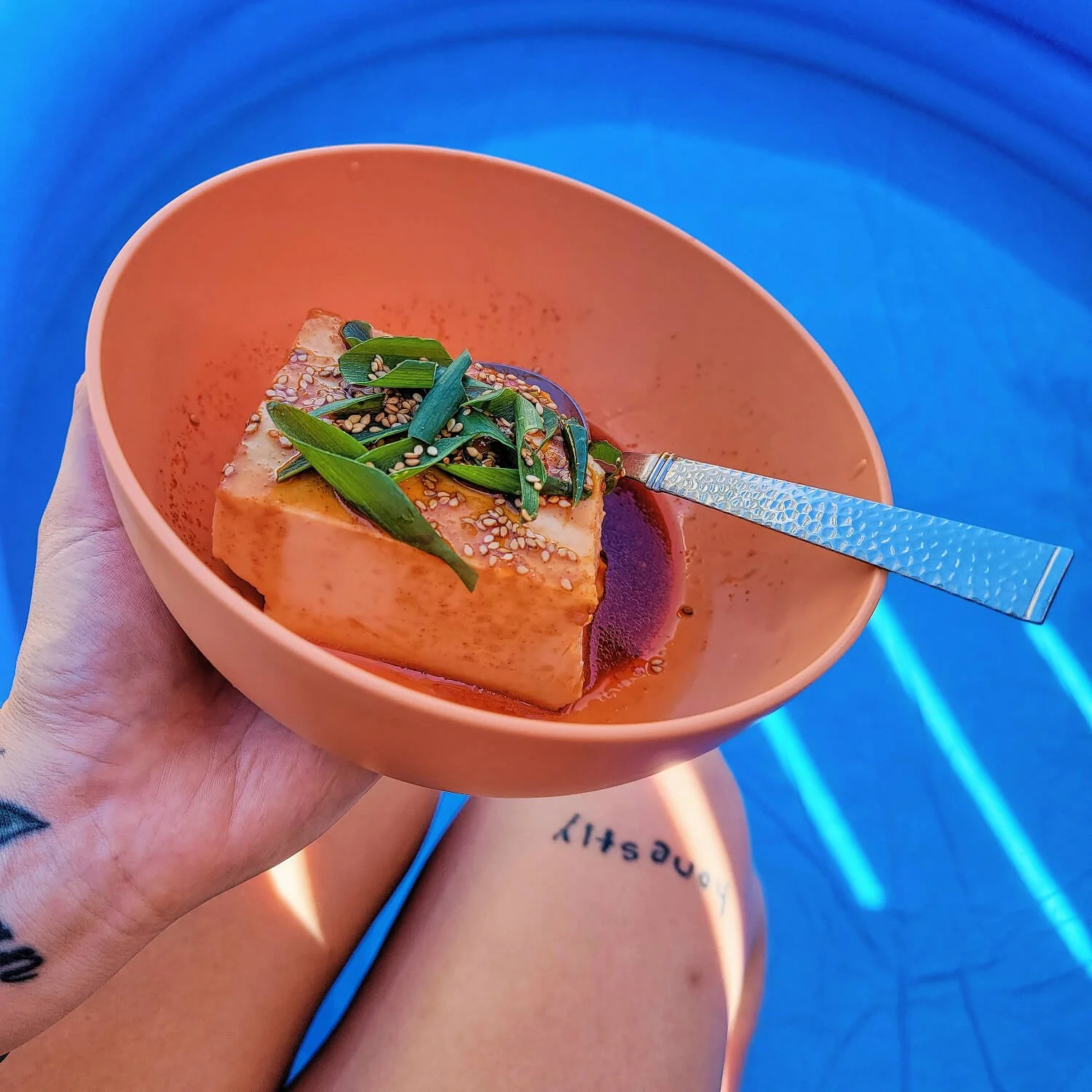














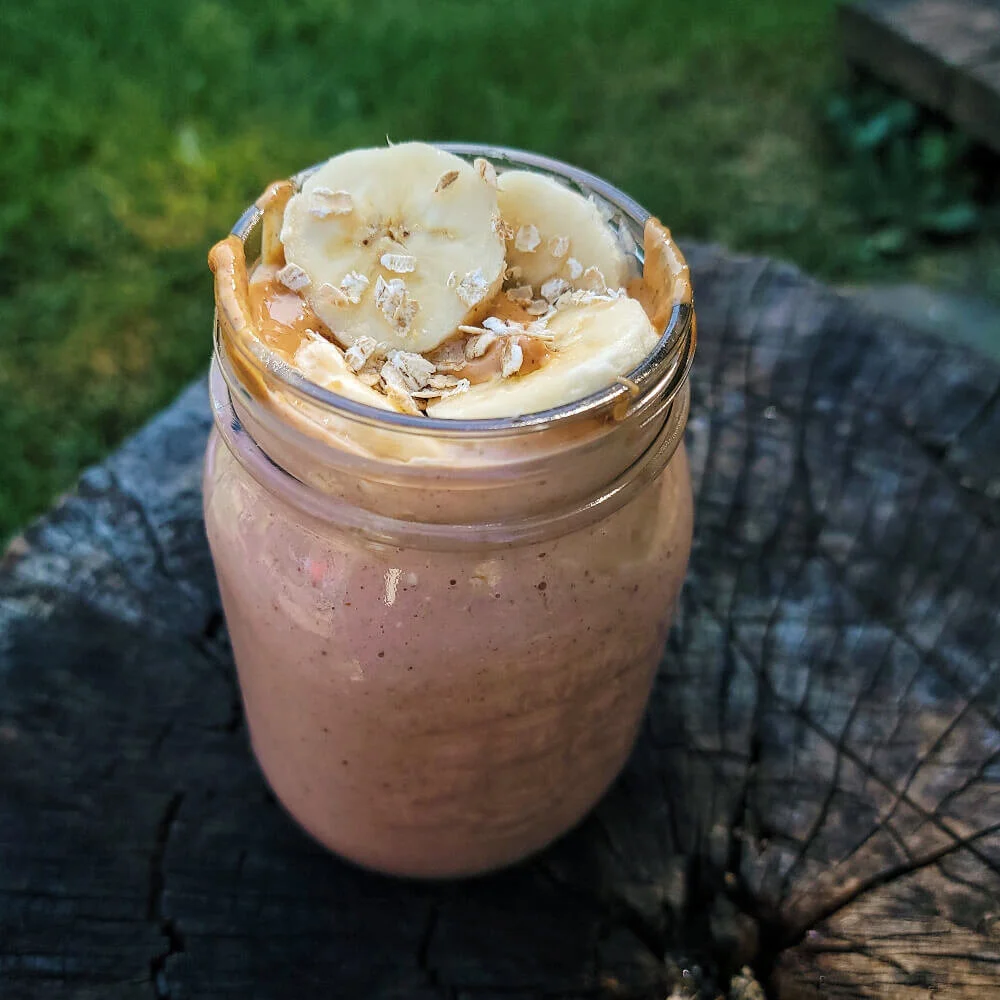
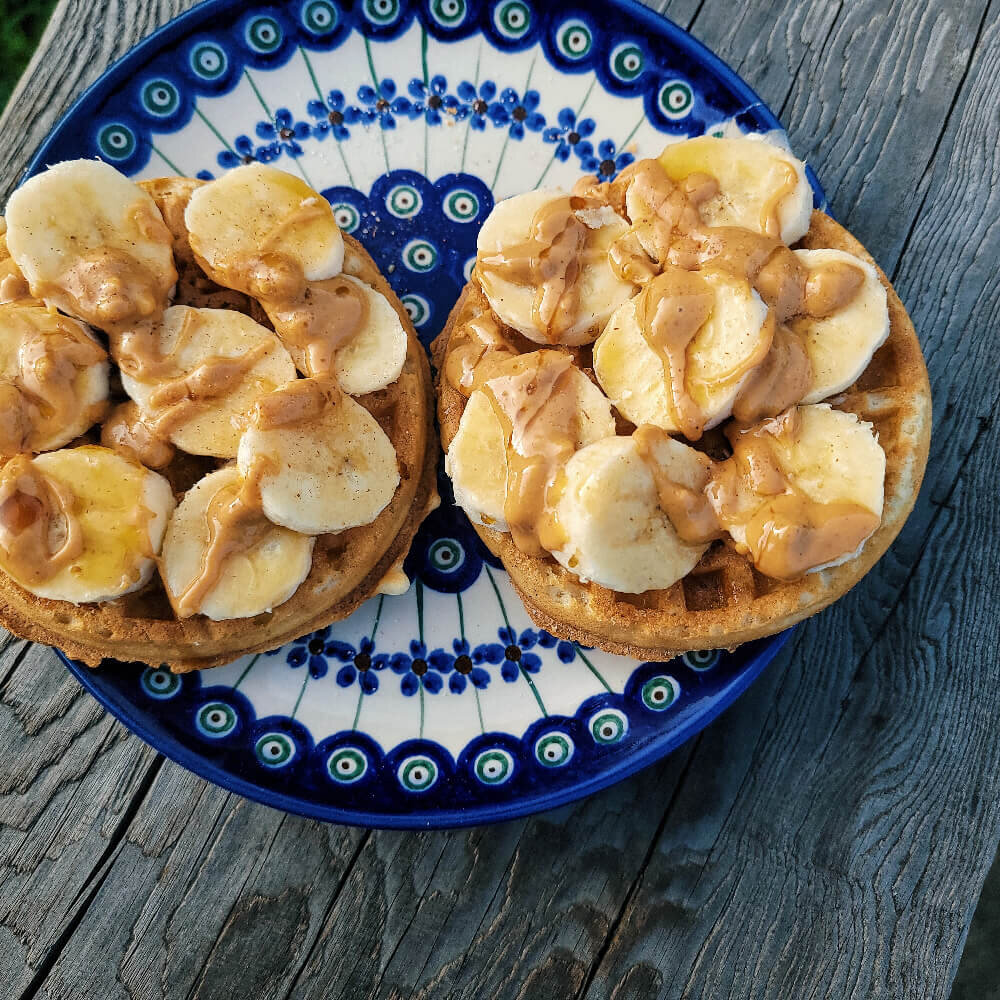
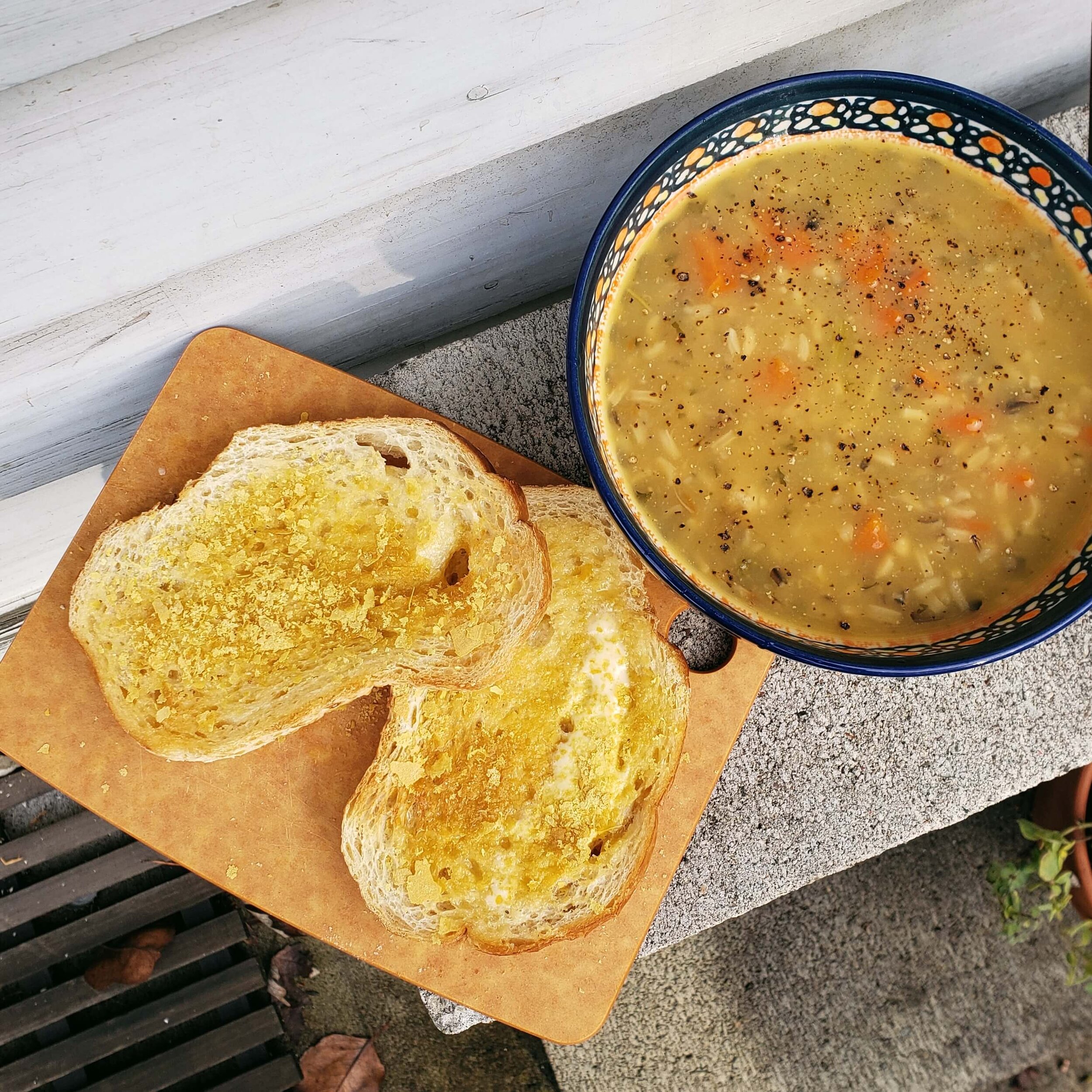

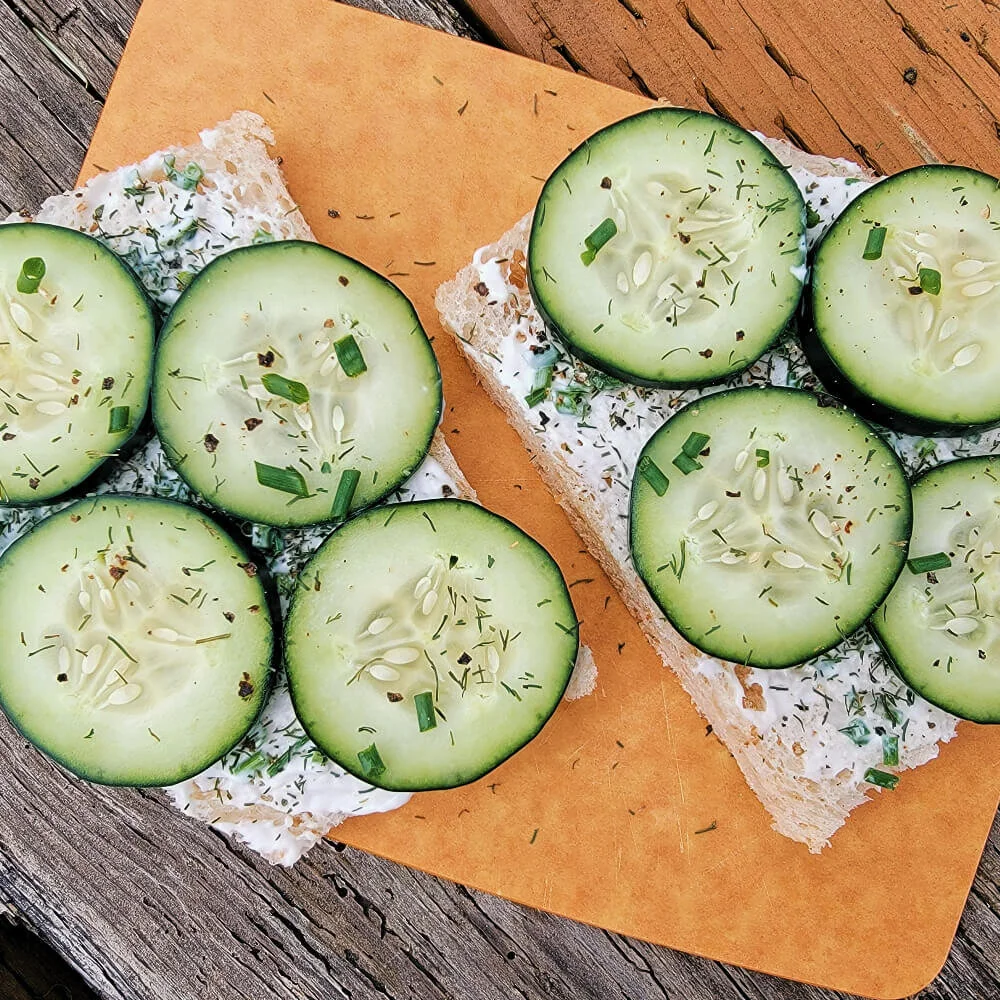
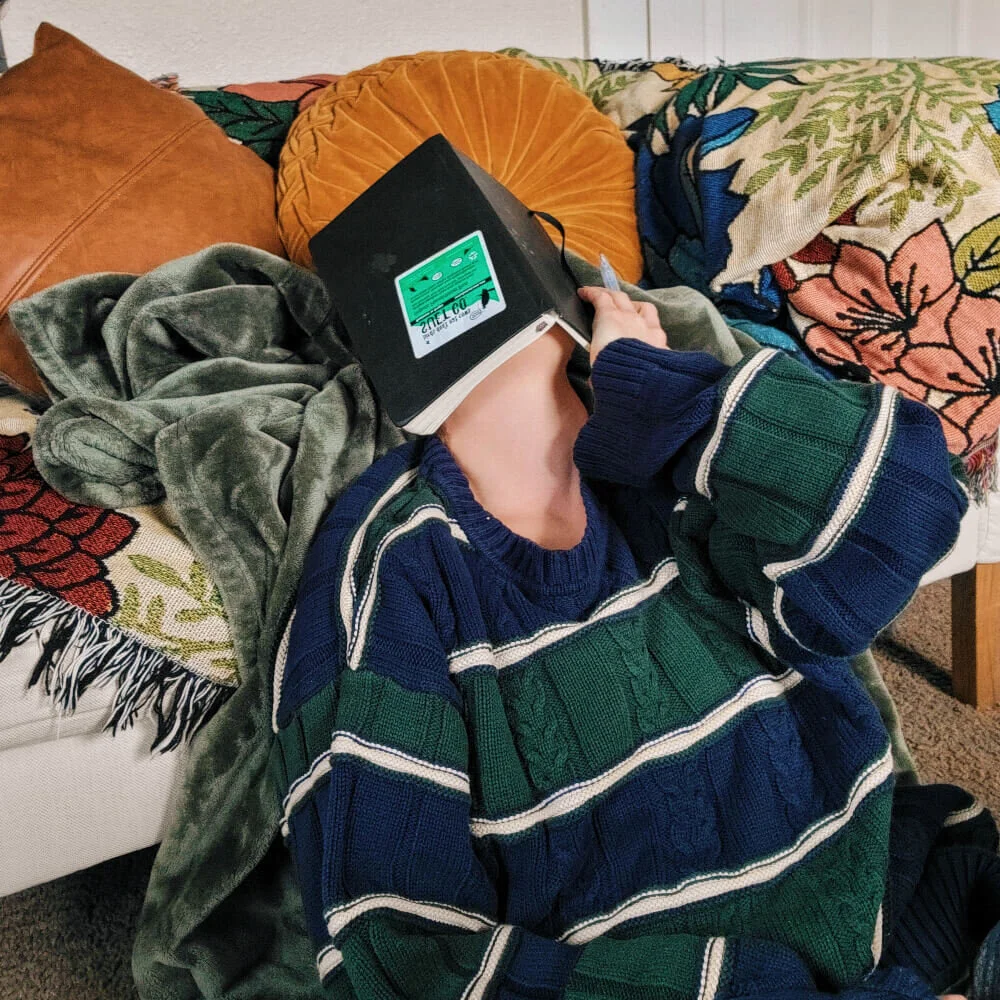
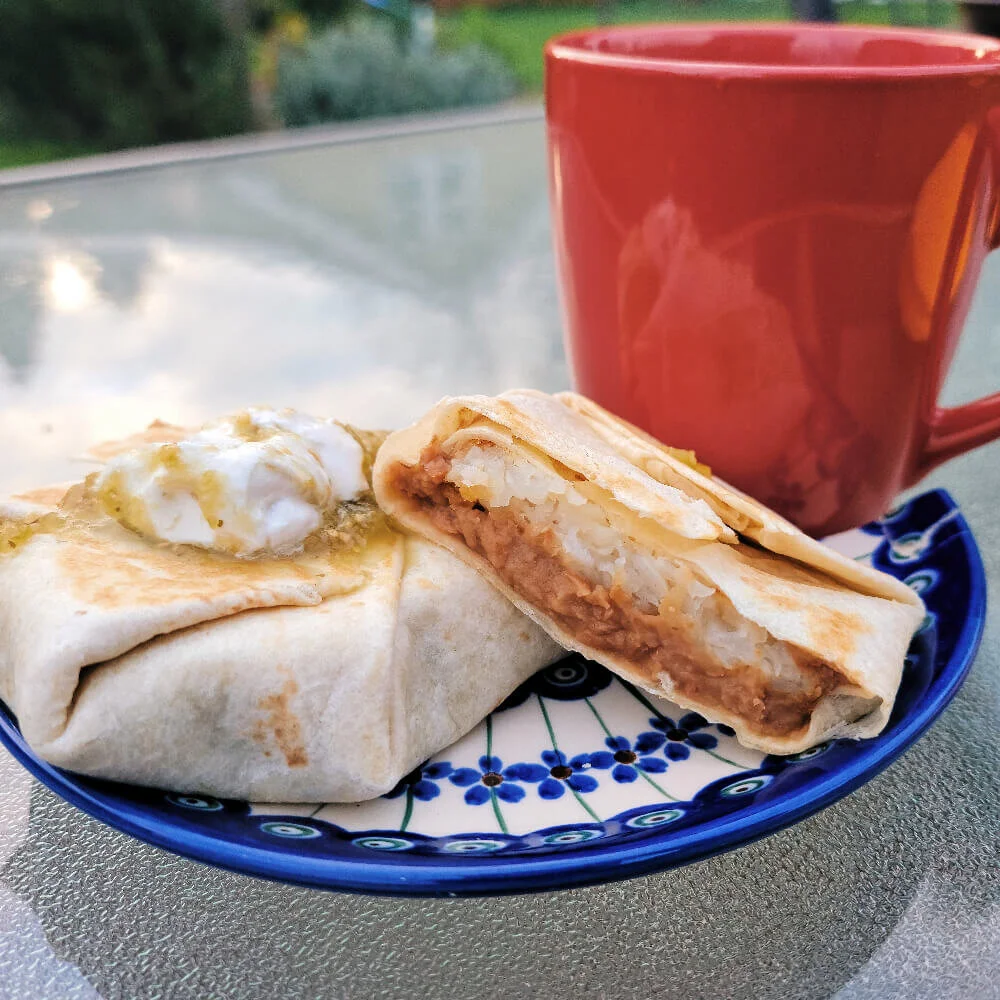
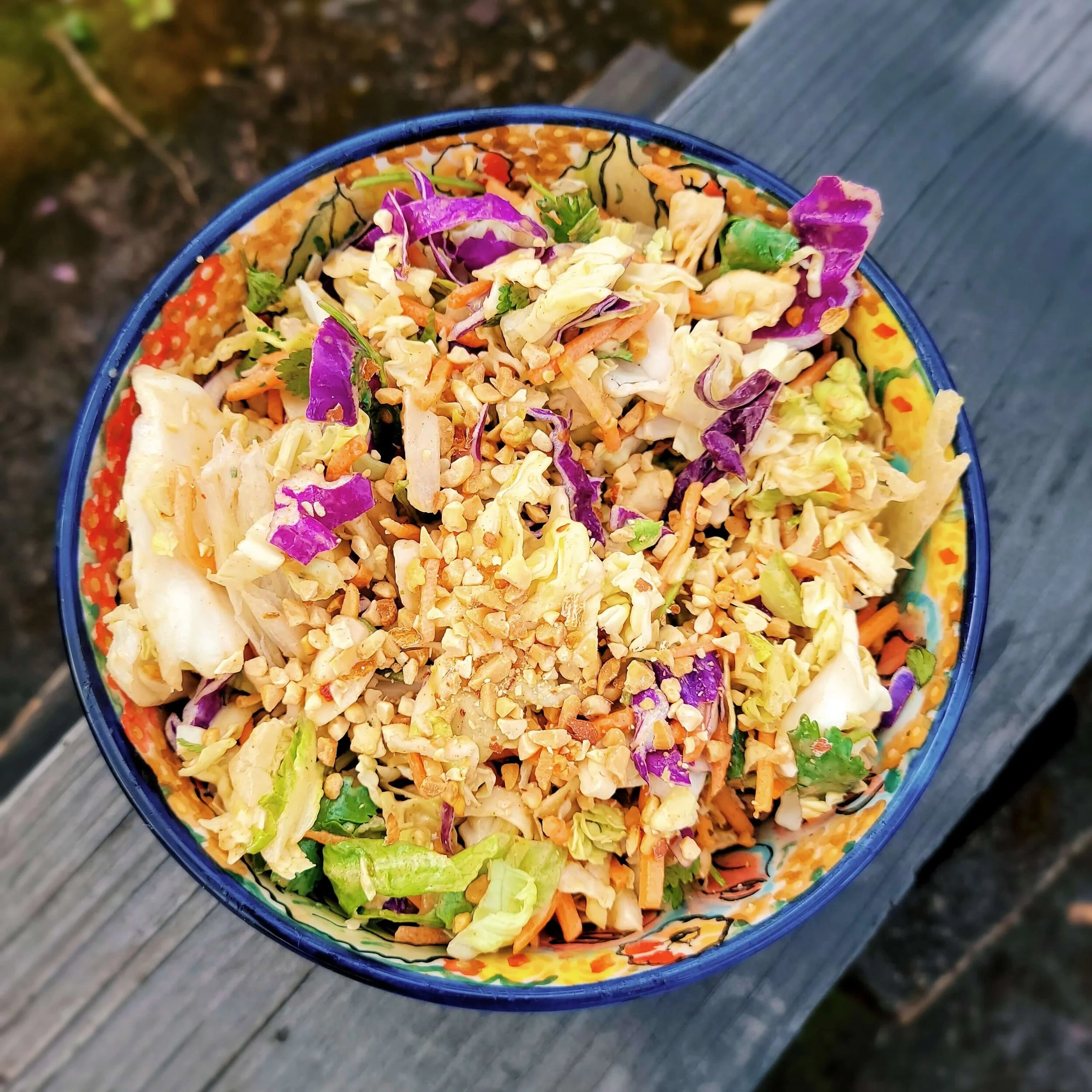
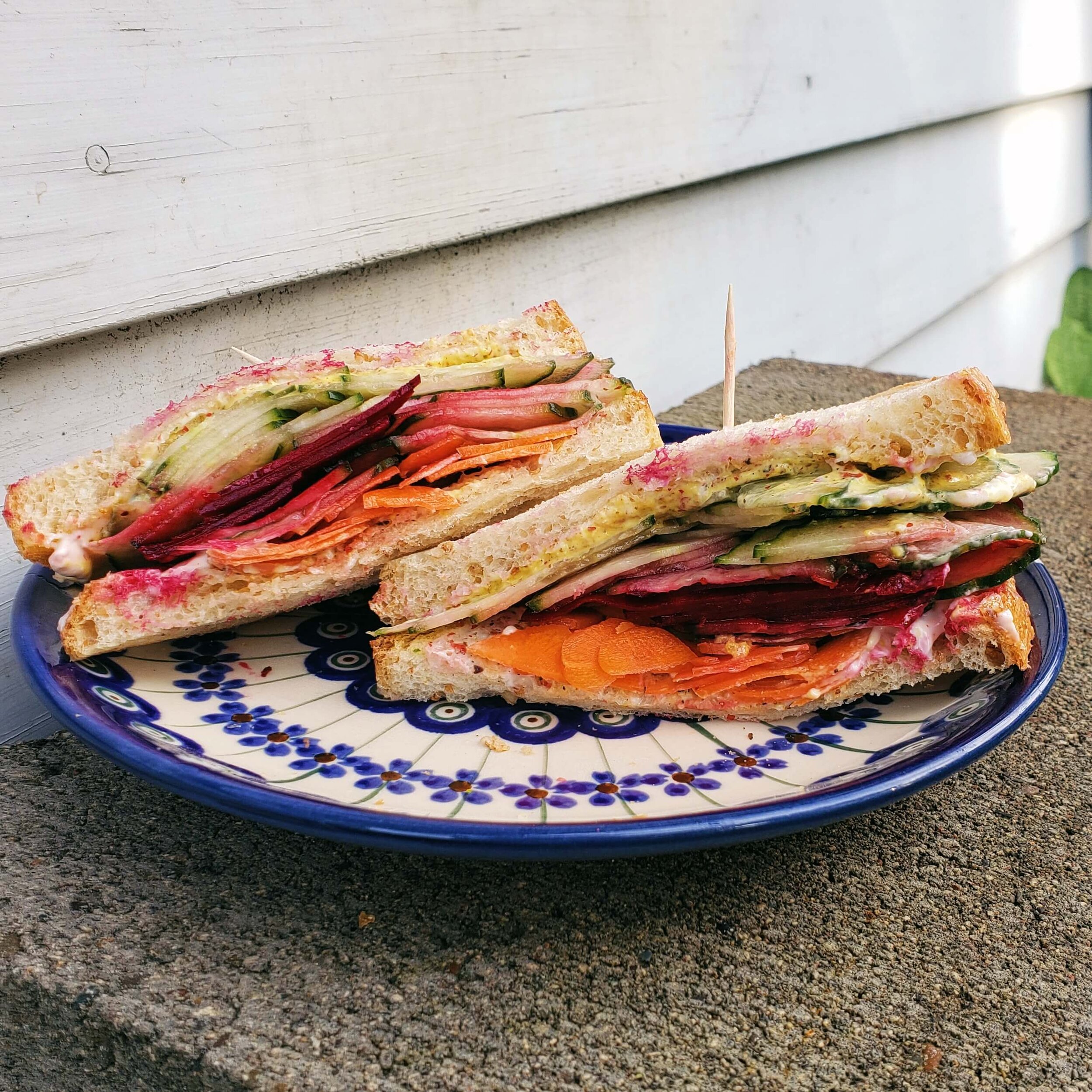




When the thought of cooking sounds absolutely soul-crushing, try some of these realistic ways to make it a lil bit easier.